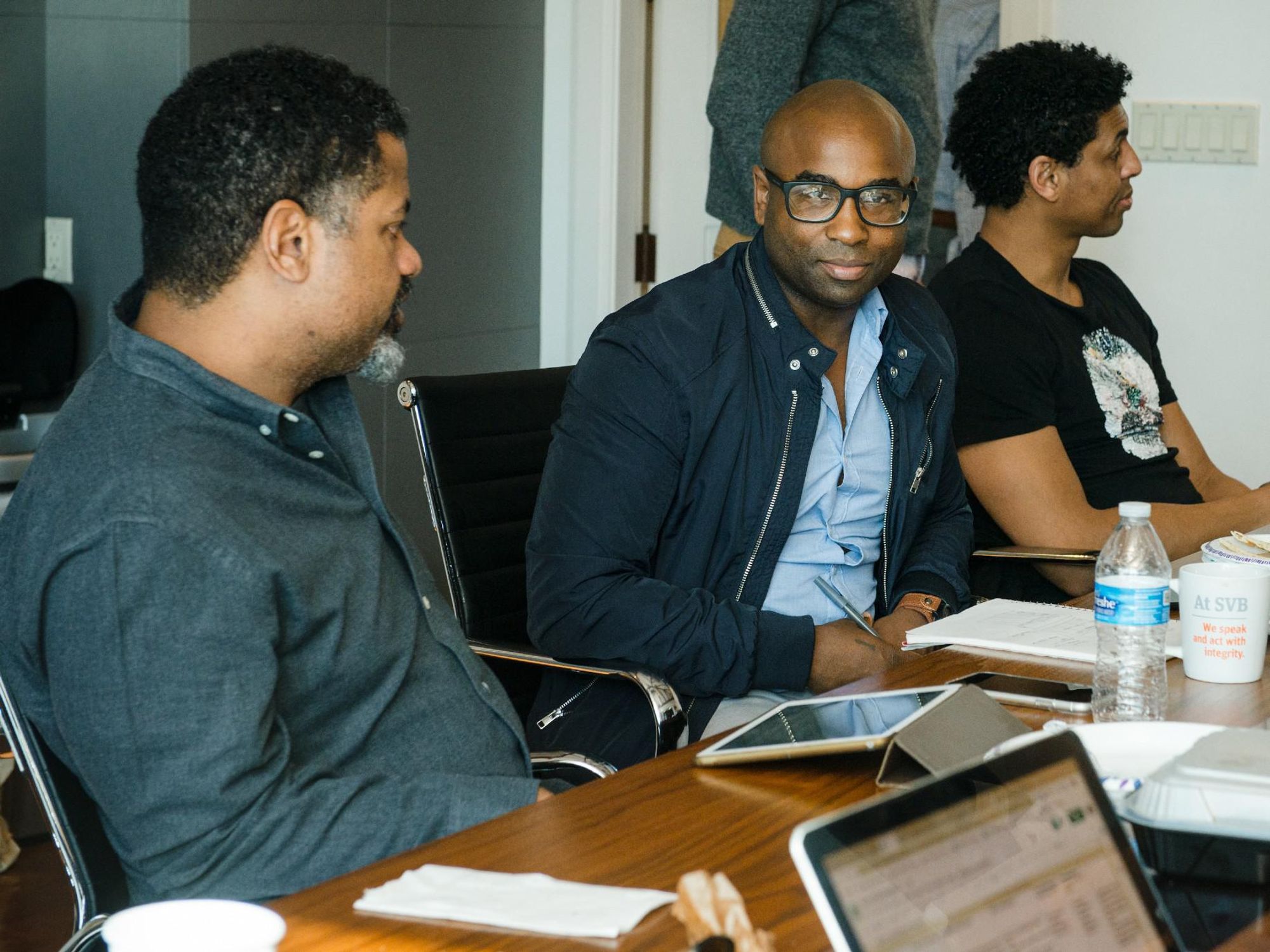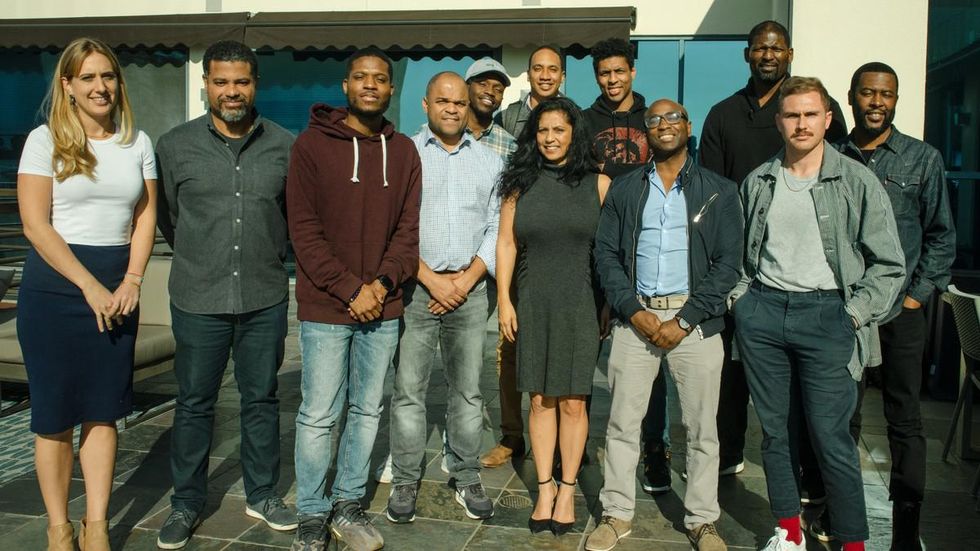This Startup Accelerator Is Searching for ‘the Next Google in South LA’
Harri is dot.LA's senior finance reporter. She previously worked for Gizmodo, Fast Company, VentureBeat and Flipboard. Find her on Twitter and send tips on L.A. startups and venture capital to harrison@dot.la.

Diversity pledges are increasingly ubiquitous in tech, but venture capitalists—whose checks underpin the industry’s runaway growth—still chronically overlook entrepreneurs in Black and brown communities.
The glaring fundraising disparity drove marketing strategist Derek Smith to found Plug In South LA, a startup accelerator based in South Los Angeles, in 2015. Focused on tech startups targeting health care, climate and sustainability, and advertising and media, Plug In is currently in the final stages of a search for a new cohort. Applications for its latest program, which will run from March through May, close on Feb. 3.
While the seven-year-old accelerator hails from South L.A., early-stage Black and brown founders based anywhere can apply to the program. Unlike some larger incubators, Plug In doesn’t take equity or collect fees from its accelerator participants. It also doesn’t fund companies directly—though that could change as soon as this year, according to Smith..
‘How to Play in Startup-Land’
When Smith returned to his hometown in 2015 after a 15-year stint in New York, he began hosting lunch-and-learns to help founders around his neighborhood.
At the time, “L.A. was a really hot tech ecosystem,” he said in an interview with dot.LA. “Ring, Bird, Snap—all these really cool things were happening” But in communities like South L.A., coworking spaces and other incubators for tech and startup talent were absent.
“The whole point of the work that we’re doing is to correct some of the flaws in the market to prepare, educate and inform the talent that’s there,” Smith said. Plug In’s goal, he added, is to help Black and brown founders “really understand how to play in startup-land and venture capital-land and all of these other sectors and spaces.”
Those early meet-ups eventually snowballed into the 13-week program that Plug In offers today. Among its perks, Plug In promises to connect its spring cohort with partners and mentors at the likes of Disney, New York-based venture fund CourtsideVC and prolific VC industry law firm Gunderson Dettmer.

Devin Dixon, an Atlanta-based founder who joined the accelerator in search of product market fit, said Plug In helped him find his company’s “true north star.” During the program, Dixon’s startup, BingeWave, evolved from a tool for film festivals and filmmakers into a metaverse app builder, he told dot.LA.
After the program, Dixon went on to join Launch House’s accelerator, which he described as comparably less structured and more networking-oriented. By contrast, Plug In “focuses on how you become an actual business, versus just venture raising,” he said.
“That is good for underrepresented founders,” Dixon added, “simply because we typically struggle to raise capital.”
Bridging the Funding Gap
For an industry bent on breakneck growth, progress toward racial equity in the insular world of startup fundraising is moving at a glacial pace. The vast majority of venture capital dollars still go to white male founders, while leadership roles at VC firms remain overwhelmingly occupied by men.
In the U.S., only 1.2% of VC dollars went to Black founders during the first half of 2021, per Crunchbase. Likewise, a separate full-year report from the data firm also found that Latinx founders secured just 1.2% of U.S. VC dollars raised in 2021.
Female-founded companies are similarly underrepresented, with a 2% cut of total venture dollars raised last year, according to Pitchbook data.
Well aware of these disparities, Smith says he is exploring raising an early-stage fund of his own to invest in underrepresented founders, potentially as soon as this year.
“We’ve talked about what our fund would look like and it’s something that we are looking to pull the trigger on,” he said, noting that he would look to invest “somewhere in the ballpark of $50,000 per startup.”
Ultimately, he added, “the 20-year plan is to see the next Google come out of a place like South L.A.—founded by Black and brown co-founders.”
Harri is dot.LA's senior finance reporter. She previously worked for Gizmodo, Fast Company, VentureBeat and Flipboard. Find her on Twitter and send tips on L.A. startups and venture capital to harrison@dot.la.




 Image Source: JetZero
Image Source: JetZero